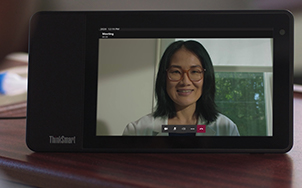Meet the scientist turning venom into medicine
Zoltan Takacs spends his time seeking out the creatures most of us run from — snakes, scorpions, spiders, even venomous marine snails. He’s not in it for the thrills, exactly, but instead, the powerful molecules hidden in the deadliest of Earth's biodiversity. Those lethal substances contain potentially life-saving compounds that could be harnessed to treat everything from heart attacks to cancer.
Takacs’ job is not without its risks. The Hungarian biomedical scientist has been bitten by snakes more than half a dozen times. He’s allergic to both venom and antivenom. And in the pursuit of these powerful animal secretions, he’s traveled to more than 190 countries. Far-flung locales, including the Sahara and the rainforests of the Congo, have taken turns acting as his makeshift office. Aiding his scientific pursuits, Takacs is an aircraft pilot, scuba diver and avid wildlife photographer. What drives him, he says, is “the mystery and beauty in nature.”
It can take months of planning, travel and searching, from securing permits within the host country to actually sighting the animal of interest, before Takacs locates his target. Once he finds the venomous creature, Takacs captures it, takes a small tissue sample and typically sets it free.
While in the field, the scientist is able to carry only a carefully selected set of equipment, which always includes his Lenovo ThinkPad.
FEATURED SOLUTIONS
“Everything besides catching a snake requires a computer,” the longtime ThinkPad user says of his work. “Well, even catching a snake requires a computer to email the permit application…”
Takacs relies on Lenovo’s technological solutions for executing every aspect of his trip: navigation planning, cataloging field samples and the remote management of research projects halfway across the world. In a pinch, he’ll charge his devices with car batteries and solar power.
“It doesn’t matter where we travel — I have to have access to my data and have the ability to work with it,” he says. “All of this is done with Lenovo machines.” For Takacs, choosing the right technological equipment comes down to “portability, reliability and powerful specs.”

Everything besides catching a snake requires a computer. Well, even catching a snake requires a computer to email the permit application.
– Dr. Zoltan Tackacs
Innovative technology also comes into play back at the lab. After acquiring samples, Takacs takes them to his laboratory, where he and a team of researchers extract the toxins' genetic blueprints and use the data to design and build mosaic toxins that can target specific ailments.
The scientist describes the process of building a mosaic toxin as being like constructing a limb; the fingers come from a variety of venoms, which the researcher assembles in the lab into a new “hand.” In fact, he's creating millions of new hands -- or molecules -- this way and assembling them in what’s known as “designer toxin libraries.” By experimenting, he identifies the winner: a molecule that is based on nature, but fine-tuned for sophistication and the potential treatment of an ailment. Recently, Takacs and his team created one such hand that shows promise in the diagnosis and treatment of some types of cancers.
“We created this library of mosaic scorpion toxins, screened against a target, and now we identified a novel molecule that finds cancer cells,” Takacs explains.

Takacs used the ThinkPad for “nearly every single bit and piece of this research, from design to experimentation to analysis.
Takacs used the ThinkPad for “nearly every single bit and piece of this research, from design to experimentation to analysis.”
“I went for something that is powerful and extendable. Something that I can pull out of the docking station in my office, put in my backpack, and go to the middle of the Sahara and still be able to work with my data and colleagues. It’s portable, it’s powerful and it’s reliable.”
Reliability is key for Takacs, whose work never seems to stop. In addition to his studies on cancer-targeting molecules, he’s currently developing libraries of mosaic toxins designed to tackle pain and autoimmune disorders by harnessing toxins that block certain receptors in the human body. These projects are not limited to scorpion venom, but include venoms from “spiders, snakes, sea anemones, and marine snails.”
For Takacs, it all starts with nature. The key to his success, he says, is harnessing the power of nature’s “evolutionary wisdom” — and “tweaking it by science to your likings.”




















